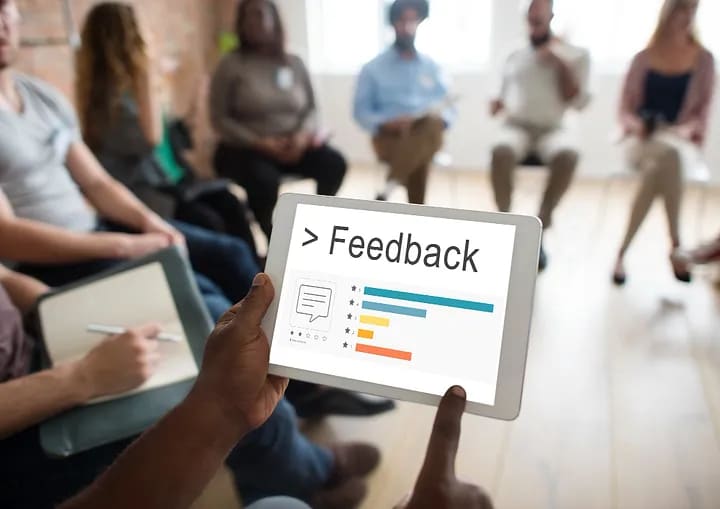eLearning Development Services: Transforming Education and Training
eLearning Development Services

In an increasingly digital world, eLearning has emerged as a powerful tool to meet the evolving needs of education and corporate training. eLearning development services play a crucial role in creating engaging, effective, and accessible learning experiences. These services encompass a range of activities, from content creation and instructional design to technology integration and platform management. This article explores the various aspects of eLearning development services, their benefits, and best practices for successful implementation.

What Are eLearning Development Services?
eLearning development services involve the design, creation, and deployment of online learning solutions. These services are provided by specialized companies or teams that bring together expertise in instructional design, multimedia development, software engineering, and project management. The goal is to deliver high-quality educational content that is engaging, interactive, and tailored to the needs of the target audience.
Key Components of eLearning Development Services
- Instructional Design: Instructional design is the foundation of effective eLearning. It involves creating a structured learning experience based on educational theories and best practices. Instructional designers work to define learning objectives, develop course content, and design assessments that measure learners’ progress.
- Content Development: Content development encompasses the creation of educational materials such as text, videos, animations, simulations, quizzes, and interactive activities. Content developers ensure that the material is engaging, relevant, and aligned with the learning objectives.
- Multimedia Integration: Multimedia elements, including graphics, audio, and video, are integrated into eLearning courses to enhance engagement and retention. Multimedia developers work on creating and embedding these elements in a way that complements the learning experience.
- Technology Solutions: eLearning development services often include the selection and implementation of appropriate technology platforms. This might involve choosing a Learning Management System (LMS), developing custom software, or integrating third-party tools to support the learning process.
- User Experience (UX) Design: UX design focuses on creating an intuitive and user-friendly interface for learners. This includes navigation, layout, accessibility, and overall usability to ensure a smooth learning experience.
- Quality Assurance: Quality assurance processes are vital to ensure that eLearning content is accurate, error-free, and functions as intended. This includes thorough testing and reviews before the final deployment.
- Deployment and Maintenance: Deployment involves launching the eLearning course on the chosen platform and making it accessible to learners. Maintenance services include ongoing support, updates, and enhancements to keep the course relevant and effective.

Benefits of eLearning Development Services
- Customized Learning Solutions: eLearning development services provide tailored solutions that meet the specific needs of an organization or educational institution. This ensures that the learning content is relevant and aligned with the desired outcomes.
- Scalability: eLearning solutions can be easily scaled to accommodate different numbers of learners, making them suitable for small groups as well as large organizations.
- Cost-Effectiveness: eLearning reduces the need for physical infrastructure, travel, and printed materials, resulting in significant cost savings.
- Flexibility: Learners can access eLearning courses anytime and anywhere, providing flexibility and convenience. This is particularly valuable for remote or distributed teams.
- Engagement and Interactivity: Interactive elements such as quizzes, simulations, and gamified content enhance learner engagement and motivation.
- Data-Driven Insights: eLearning platforms often include analytics and reporting features that provide insights into learner performance and course effectiveness. This data can be used to make informed decisions and improvements.
Best Practices for Effective eLearning Development
- Define Clear Objectives: Start with well-defined learning objectives that outline what learners are expected to achieve. These objectives guide the design and development process.
- Know Your Audience: Understand the needs, preferences, and skill levels of your target audience. This information helps in creating content that is relevant and engaging.
- Leverage Multimedia Wisely: Use multimedia elements to enhance the learning experience, but avoid overloading the course with excessive graphics or animations that may distract learners.
- Ensure Accessibility: Design eLearning content to be accessible to all learners, including those with disabilities. This includes using alt text for images, providing transcripts for videos, and ensuring compatibility with screen readers.
- Incorporate Interactivity: Include interactive elements such as quizzes, simulations, and discussions to keep learners engaged and reinforce learning.
- Test Thoroughly: Conduct rigorous testing to identify and fix any issues before deployment. This includes functional testing, usability testing, and content reviews.
- Gather Feedback: Collect feedback from learners and stakeholders to assess the effectiveness of the eLearning course and identify areas for improvement.

Conclusion
eLearning development services are essential for creating effective and engaging online learning experiences. By leveraging expertise in instructional design, content development, technology integration, and user experience, these services transform traditional education and training into dynamic, flexible, and scalable solutions. By following best practices and focusing on the needs of learners, organizations can maximize the benefits of eLearning and achieve their educational and training goals. As the demand for online learning continues to grow, eLearning development services will play a pivotal role in shaping the future of education and professional development.
About the Creator
Enjoyed the story? Support the Creator.
Subscribe for free to receive all their stories in your feed. You could also pledge your support or give them a one-off tip, letting them know you appreciate their work.





Comments
There are no comments for this story
Be the first to respond and start the conversation.